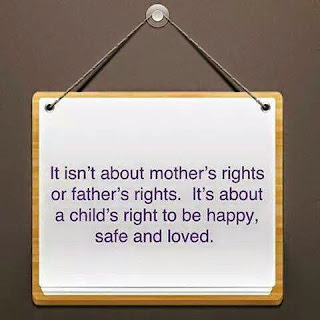A liberatormagazine.com Exclusive Feature
Excerpts from the article: Fatherless Woman Syndrome
 "When a woman is left without her father, she has emptiness inside, she struggles with abandonment issues, and she may even feel unloved or unwanted.
"When a woman is left without her father, she has emptiness inside, she struggles with abandonment issues, and she may even feel unloved or unwanted.
 Some ladies without fathers in their lives may disagree with this diagnosis and may feel that their fathers’ absence has no affect or control over their lives but, even if it’s subconscious, it does have and affect and if we would be honest with ourselves, we would see that the syndrome shows its ugly head in all of our relationships."
Some ladies without fathers in their lives may disagree with this diagnosis and may feel that their fathers’ absence has no affect or control over their lives but, even if it’s subconscious, it does have and affect and if we would be honest with ourselves, we would see that the syndrome shows its ugly head in all of our relationships."
"There is something about the father daughter relationship that is so special and unique; it’s where a woman recognizes her role and where she learns about a man’s role. This is why when a woman is left fatherless, something is lost; she doesn’t truly understand who she is as woman or the right things to look for when choosing a mate"
~ Terrica Taylor
Read the entire article HERE
 Fatherless (or “daddyless”) daughters are women who grew up without an active father, usually one who was absent by what appears to be his choice. This appearance of his choice to be absent is the key to the complexities of the girl/woman’s questions about her value to their relationship. As is true of many in my situation, I developed a fatherless daughter syndrome that would affect my self-esteem and my relationships with men over the years.
Fatherless (or “daddyless”) daughters are women who grew up without an active father, usually one who was absent by what appears to be his choice. This appearance of his choice to be absent is the key to the complexities of the girl/woman’s questions about her value to their relationship. As is true of many in my situation, I developed a fatherless daughter syndrome that would affect my self-esteem and my relationships with men over the years.
For girls, her relationship with her father sets the stage for her search for a husband or mate. A father conditions his daughter to how she will allow a prospective husband/mate to treat her and speak to her. She learns by the love of her father that she is lovable and worthy of the love of a man whom she hopes is as good as her father. Rarely will she consider it possible to have the love of a man who is better than her father.
 If the father does not communicate his reasons for being absent, the girl may consider that it is her fault. That it is something she said or did to keep him away from her–she does not consider that the father is keeping away from her mother. If the father does not demonstrate love for his daughter, she will consider herself unloved and worse, unlovable. Later, in her search for a mate, not having had her father’s love, she will feel devalued and will settle for a man who does not demonstrate love.
If the father does not communicate his reasons for being absent, the girl may consider that it is her fault. That it is something she said or did to keep him away from her–she does not consider that the father is keeping away from her mother. If the father does not demonstrate love for his daughter, she will consider herself unloved and worse, unlovable. Later, in her search for a mate, not having had her father’s love, she will feel devalued and will settle for a man who does not demonstrate love.




























